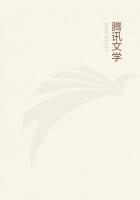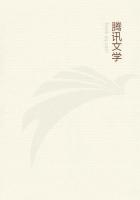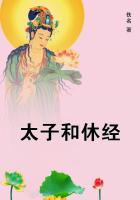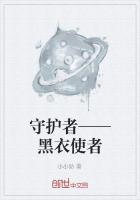Body undetermined cannot be imagined to give rise to appetite and purpose, nor can pure soul be occupied about sweet and bitter: all this must belong to what is specifically body but chooses to be something else as well, and so has acquired a restless movement unknown to the soul and by that acquisition is forced to aim at a variety of objects, to seek, as its changing states demand, sweet or bitter, water or warmth, with none of which it could have any concern if it remained untouched by life.
In the case of pleasure and pain we showed how upon distress follows the knowledge of it, and that the soul, seeking to alienate what is causing the condition, inspires a withdrawal which the member primarily affected has itself indicated, in its own mode, by its contraction.Similarly in the case of desire: there is the knowledge in the sensation [the sensitive phase of the soul] and in the next lower phase, that described as the "Nature" which carries the imprint of the soul to the body; that Nature knows the fully formed desire which is the culmination of the less formed desire in body;sensation knows the image thence imprinted upon the Nature; and from the moment of the sensation the soul, which alone is competent, acts upon it, sometimes procuring, sometimes on the contrary resisting, taking control and paying heed neither to that which originated the desire nor to that which subsequently entertained it.
But why, thus, two phases of desire; why should not the body as a determined entity [the living total] be the sole desirer?
Because there are [in man] two distinct things, this Nature and the body, which, through it, becomes a living being: the Nature precedes the determined body which is its creation, made and shaped by it; it cannot originate the desires; they must belong to the living body meeting the experiences of this life and seeking in its distress to alter its state, to substitute pleasure for pain, sufficiency for want: this Nature must be like a mother reading the wishes of a suffering child, and seeking to set it right and to bring it back to herself; in her search for the remedy she attaches herself by that very concern to the sufferer's desire and makes the child's experience her own.
In sum, the living body may be said to desire of its own motion in a fore-desiring with, perhaps, purpose as well; Nature desires for, and because of, that living body; granting or withholding belongs to another again, the higher soul.
21.That this is the phase of the human being in which desire takes its origin is shown by observation of the different stages of life; in childhood, youth, maturity, the bodily desires differ; health or sickness also may change them, while the [psychic] faculty is of course the same through all: the evidence is clear that the variety of desire in the human being results from the fact that he is a corporeal entity, a living body subject to every sort of vicissitude.
The total movement of desire is not always stirred simultaneously with what we call the impulses to the satisfaction even of the lasting bodily demands; it may refuse assent to the idea of eating or drinking until reason gives the word: this shows us desire- the degree of it existing in the living body- advancing towards some object, with Nature [the lower soul-phase] refusing its co-operation and approval, and as sole arbiter between what is naturally fit and unfit, rejecting what does not accord with the natural need.
We may be told that the changing state of the body is sufficient explanation of the changing desires in the faculty; but that would require the demonstration that the changing condition of a given entity could effect a change of desire in another, in one which cannot itself gain by the gratification; for it is not the desiring faculty that profits by food, liquid, warmth, movement, or by any relief from overplenty or any filling of a void; all such services touch the body only.
22.And as regards vegetal forms? Are we to imagine beneath the leading principle [the "Nature" phase] some sort of corporeal echo of it, something that would be tendency or desire in us and is growth in them? Or are we to think that, while the earth [which nourishes them] contains the principle of desire by virtue of containing soul, the vegetal realm possesses only this latter reflection of desire?
The first point to be decided is what soul is present in the earth.
Is it one coming from the sphere of the All, a radiation upon earth from that which Plato seems to represent as the only thing possessing soul primarily? Or are we to go by that other passage where he describes earth as the first and oldest of all the gods within the scope of the heavens, and assigns to it, as to the other stars, a soul peculiar to itself?
It is difficult to see how earth could be a god if it did not possess a soul thus distinct: but the whole matter is obscure since Plato's statements increase or at least do not lessen the perplexity.It is best to begin by facing the question as a matter of reasoned investigation.
That earth possesses the vegetal soul may be taken as certain from the vegetation upon it.But we see also that it produces animals;why then should we not argue that it is itself animated? And, animated, no small part of the All, must it not be plausible to assert that it possesses an Intellectual-Principle by which it holds its rank as a god? If this is true of every one of the stars, why should it not be so of the earth, a living part of the living All? We cannot think of it as sustained from without by an alien soul and incapable of containing one appropriate to itself.
Why should those fiery globes be receptive of soul, and the earthly globe not? The stars are equally corporeal, and they lack the flesh, blood, muscle, and pliant material of earth, which, besides, is of more varied content and includes every form of body.If the earth's immobility is urged in objection, the answer is that this refers only to spatial movement.

